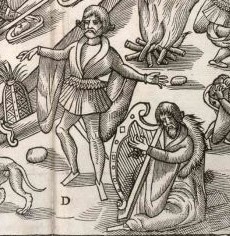If you’re ever tempted to doubt the power of language to influence behaviour, you need only consider the tragic case of the first known relationship between literature and mass suicide.
In 1774 – at a time when fiction-writing and reading were ever-more popular – Johann Wolfgang von Goethe published his novel, The Sorrows of Young Werther. With its overblown emotions and dramatic plot, it was a runaway bestseller, particularly among young adult readers.
Young men all over Europe imitated the protagonist by dressing in his trademark yellow trousers and blue jacket, and some of them were even inspired by the fictional character’s sad death (suicide by self-inflicted gunshot after being rejected by the woman he loved) to kill themselves using similar means. Panic-stricken parents rallied, and the book – as well as the outfit – was even banned in some places, while debate raged about whether or not impressionable young people should even be allowed to read fiction at all.
Today, social contagion, particularly when it relates to tragic or unfortunate outcomes, is often attributed to the media. Researchers in the area still refer to the ‘Werther effect’ in discussions of copycat suicide with a connection to language and media.
Photo Source: https://andrewbarger.blogspot.com/2017/04/review-of-sorrows-of-young-werther.html









